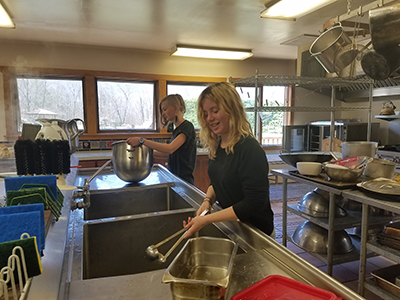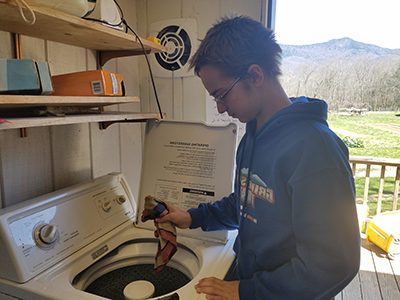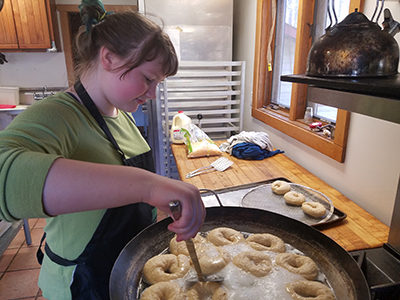Why Life Skills are Important?

Recently there has been a lot of recognition of the unseen work of educators. Besides teaching math and science, they also fill the roles of counselors, nurses, and nutritionalists, just to name a few. School is increasingly becoming a place where students learn more than just academics. The reason why life skills are important lessons is easy to see. Private high schools, colleges and employers are all prioritizing applicants that demonstrate capability in life skills instead of purely academic achievement. They recognize that holes in academic information are easily filled, while missing life skills are much harder to teach.
The understanding that teaching life skills is important to one’s education is definitely not new. Progressive education creator, John Dewey, believed that “education should also equip students to take a full and active part in shaping their future society.” He believed school was a place where they could learn the life skills necessary to develop as individuals and citizens.
What are Life Skills?
 Google “necessary life skills” and you will find plenty of suggestions. Living Well generated a 48 item list separated into categories like housekeeping, finance, and technical skills. Family Education has a list for each developmental period spanning from age 2 to adulthood. Even Forbes created list of 12 life skills employers look for in potential applicants If schools want to prepare their students for a successful future, then life skills should definitely be part of their curriculum.
Google “necessary life skills” and you will find plenty of suggestions. Living Well generated a 48 item list separated into categories like housekeeping, finance, and technical skills. Family Education has a list for each developmental period spanning from age 2 to adulthood. Even Forbes created list of 12 life skills employers look for in potential applicants If schools want to prepare their students for a successful future, then life skills should definitely be part of their curriculum.
But what are effective methods for teaching life skills? Opponents of school based life skill education believe that these lessons should occur outside of school. Students should learn life skill naturally through every day interactions and problem solving. The problem is that as students become busier with athletics, music lessons, and other extracurricular activities, life skills tend to take a back seat. Parents extend their roles as caregivers to support their children’s increasing interests, often cooking, cleaning and scheduling their life far longer than appropriate. As a result, students sometimes graduate high school without an awareness of what it takes to function on their own.
Learn more about boarding school life aft AMS!
How to Teach Life Skills
One successful method for teaching life skills is to incorporate the lessons with the daily running of the school. At Arthur Morgan School, students have been learning life skills for over 55 years. Through our boarding program and experiential education focus, our middle schoolers learn how to actively contribute to their families and communities. They learn how to articulate themselves clearly and take care of their personal needs. They understand the important role they play when interacting with others and can recognize the effects of their actions.
 As a community school, AMS asks a lot of its students. Every afternoon they are responsible for cleaning and organizing the common spaces of campus. On Wednesdays, they participate in work projects that keep the school in good repair. Committee time and All School Meeting instill a sense of responsibility in them about the school’s norms and culture. Even their classes incorporate life skills training. Internships teach science and social studies concepts while students do the real work of the school. They learn biology by taking care of the farm’s livestock. They learn history by cooking meals and examining different cultural influences.
As a community school, AMS asks a lot of its students. Every afternoon they are responsible for cleaning and organizing the common spaces of campus. On Wednesdays, they participate in work projects that keep the school in good repair. Committee time and All School Meeting instill a sense of responsibility in them about the school’s norms and culture. Even their classes incorporate life skills training. Internships teach science and social studies concepts while students do the real work of the school. They learn biology by taking care of the farm’s livestock. They learn history by cooking meals and examining different cultural influences.
For boarding students, the experience is even more intense. Daily house chores, weekend work projects and weekly house meetings all create the sense of responsibility over their lives and spaces that many schools and jobs are seeking. Add to that the expectations to cook, clean up after themselves, and budget their personal expenses and most AMS graduates end up fulfilling many of the item on those life skills lists.
-by Nicholas Maldonado
